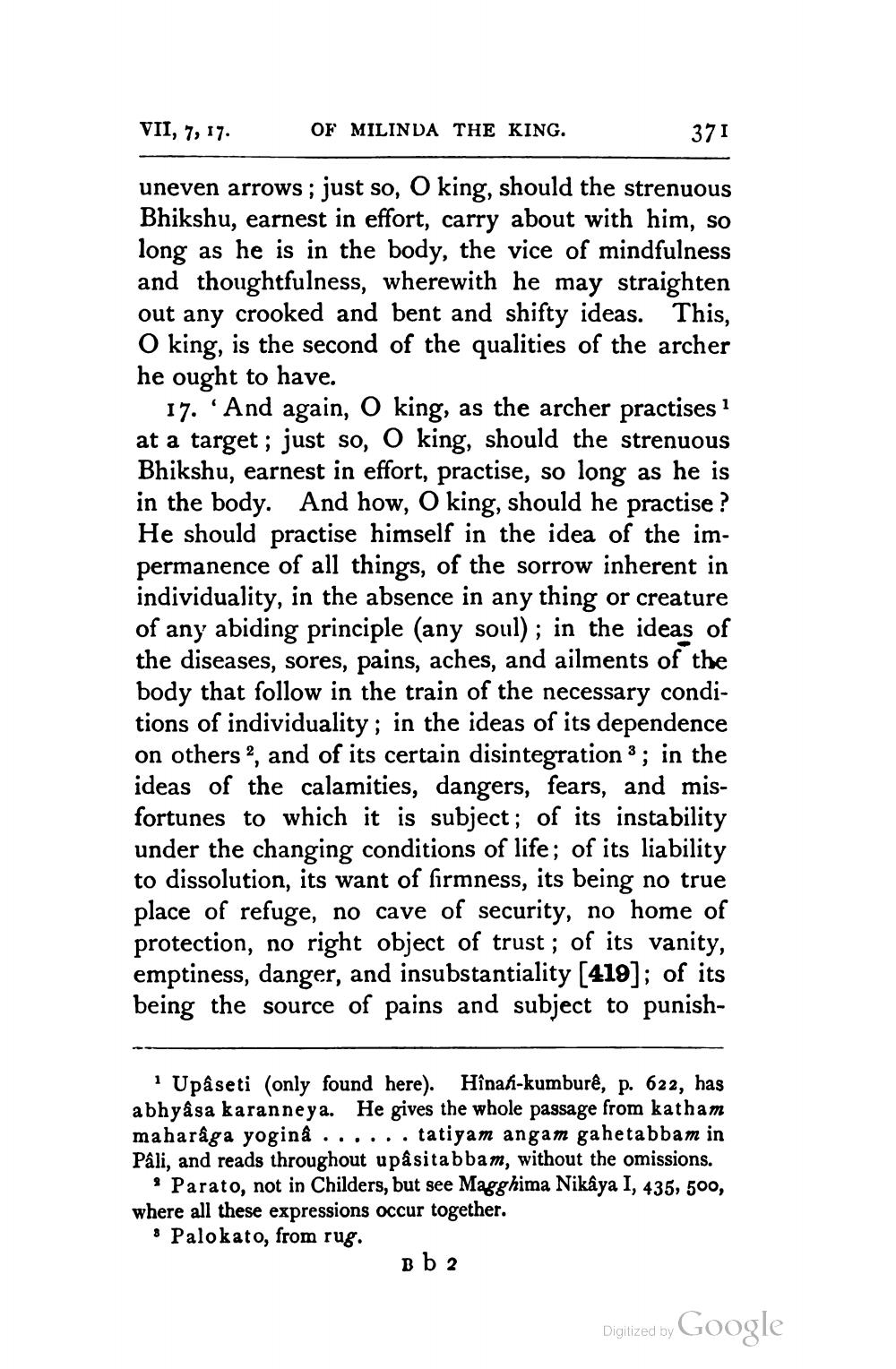________________
VII, 7, 17.
OF MILINDA THE KING.
371
uneven arrows; just so, O king, should the strenuous Bhikshu, earnest in effort, carry about with him, so long as he is in the body, the vice of mindfulness and thoughtfulness, wherewith he may straighten out any crooked and bent and shifty ideas. This, O king, is the second of the qualities of the archer he ought to have.
17. And again, O king, as the archer practises 1 at a target; just so, O king, should the strenuous Bhikshu, earnest in effort, practise, so long as he is in the body. And how, O king, should he practise ? He should practise himself in the idea of the impermanence of all things, of the sorrow inherent in individuality, in the absence in any thing or creature of any abiding principle (any soul); in the ideas of the diseases, sores, pains, aches, and ailments of the body that follow in the train of the necessary conditions of individuality; in the ideas of its dependence on others, and of its certain disintegration 3; in the ideas of the calamities, dangers, fears, and misfortunes to which it is subject; of its instability under the changing conditions of life; of its liability to dissolution, its want of firmness, its being no true place of refuge, no cave of security, no home of protection, no right object of trust; of its vanity, emptiness, danger, and insubstantiality [419]; of its being the source of pains and subject to punish
Upâseti (only found here). Hînafi-kumburê, p. 622, has abhyasa karanneya. He gives the whole passage from katham maharâga yogina ...... tatiyam angam gahetabbam in Pali, and reads throughout upå sitabbam, without the omissions.
9 Parato, not in Childers, but see Magghima Nikaya I, 435, 500, where all these expressions occur together. 8 Palokato, from rug.
Bb 2
Digitized by Google




